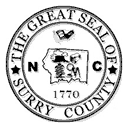Composting
go.ncsu.edu/readext?754264
en Español / em Português
El inglés es el idioma de control de esta página. En la medida en que haya algún conflicto entre la traducción al inglés y la traducción, el inglés prevalece.
Al hacer clic en el enlace de traducción se activa un servicio de traducción gratuito para convertir la página al español. Al igual que con cualquier traducción por Internet, la conversión no es sensible al contexto y puede que no traduzca el texto en su significado original. NC State Extension no garantiza la exactitud del texto traducido. Por favor, tenga en cuenta que algunas aplicaciones y/o servicios pueden no funcionar como se espera cuando se traducen.
Português
Inglês é o idioma de controle desta página. Na medida que haja algum conflito entre o texto original em Inglês e a tradução, o Inglês prevalece.
Ao clicar no link de tradução, um serviço gratuito de tradução será ativado para converter a página para o Português. Como em qualquer tradução pela internet, a conversão não é sensivel ao contexto e pode não ocorrer a tradução para o significado orginal. O serviço de Extensão da Carolina do Norte (NC State Extension) não garante a exatidão do texto traduzido. Por favor, observe que algumas funções ou serviços podem não funcionar como esperado após a tradução.
English
English is the controlling language of this page. To the extent there is any conflict between the English text and the translation, English controls.
Clicking on the translation link activates a free translation service to convert the page to Spanish. As with any Internet translation, the conversion is not context-sensitive and may not translate the text to its original meaning. NC State Extension does not guarantee the accuracy of the translated text. Please note that some applications and/or services may not function as expected when translated.
Collapse ▲Recycle fallen leaves through composting. The organic waste we put back into the environment can be used by other living organisms. Our wastes can become valuable resources. Composting is a natural occurrence in nature. Leaves that fall from a tree, clippings from a lawn, and plants and animals that die are organic materials that breakdown and decompose over time. They result in rich, dark, soil-like material called compost.
Tiny living things do most of the work of breaking down organic materials to form compost. These microorganisms include bacteria and fungi. Animals living in the soil help microorganisms break down organic materials. Worms and pill bugs are examples of soil animals that help change organic waste into compost. As microorganisms and soil animals turn organic materials into compost, they use the organic nutrients are returned to the soil, to be used again by trees, grass, and other plants. The process is nature’s way of composting and recycling. And we can help nature by composting as well.
By composting, we can save 20 to 30 percent of yard waste and food scraps from becoming garbage. Composting helps conserve landfill space not to mention it improves the soil, helps grow the next generation of food, and improves water quality. Compost can be mixed in the soil which results in better gardens, flowers, vegetables, trees, shrubs, houseplants, and lawns. Compost allows the soil to hold more water and adds nutrients to the soil.
Learn more about composting in our upcoming free webinar “Composting in the Home Garden” on December 3, 2020. Registration is required at the link below.




